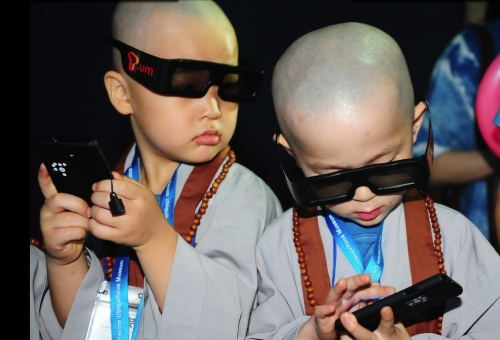
I suppose it was only a matter of time until the news of Ian Thorson’s death and the circumstances surrounding it were picked up by mainstream media. It’s the sort of story that editors love, engrossing in both its tragedy and its bizarreness. After being broken by Elephant Journal, the story appeared on the Huffington Post Weird News blog in late May. There it sat until this Tuesday, when the New York Times weighed in with “Mysterious Buddhist Retreat in the Desert Ends in a Grisly Death.” From there it has made its way onto half a dozen blogs, including the Daily Mail, Slate, and New York Magazine. And tomorrow morning, Tricycle has been informed, it will be featured on ABC’s Good Morning America.
Some on the Buddhist blogging scene have written that they are happy to see real journalistic neutrality being brought to bear on the story. You’ll have to read the coverage (all linked to above) and decide for yourself, but I’m unsure if the added media attention will have any added benefit. So far, sadly, it hasn’t seemed to bring much to the situation other than cruel and callous comments.
Anyway, if it’s not yet clear why I’ve titled this Buddha Buzz “To Hell in a Handbasket,” to that I give you this week’s international Buddhist news:
1. Two more Tibetans have self-immolated, this time in Lhasa (actually this was from two weeks ago)
2. China has barred foreigners from entering Tibet, for an undisclosed period of time
The world is going to hell in a handbasket! I’d be worried, but the world has been going to hell in a handbasket long before I started crowing about it. To that end, I appreciated an interview with Trinley Thaye Dorje, one of the two claimants to the title of the 17th Karmapa, this week with the Philippine Daily Inquirer. They asked him,
PDI: Is there time for human beings to reform before a predicted world destruction comes to pass? How should they do this, and what can they expect to happen if they mend their ways?
Thaye: The world is not going to end. Everyone has kindness within them and expresses this kindness in times of need. This is what we should pay attention to, more than “reforming.”
Phew. I actually love that question as much as the response, if only because I can’t imagine a question like that appearing in a maintream American publication. Here are some more tidbits from the interview:
PDI: How do compassion and the other tenets of Buddhism come to play in territorial disputes between countries—like the Philippines-China row over Scarborough Shoal?
Thaye: The Buddhist approach to any dispute is to first observe, then observe, and then observe some more. Finally, when there is nothing more to observe and we have a good collection of information, then we can see if the problem is worth acting on or not.
Very often, after thorough observation, we can see that it is not worth acting on—that the best way to deal with the dispute is to let go of it, but nevertheless offer support and bring peace and happiness to anyone who is affected by it.
PDI: Is there such a thing as collective/national karma? Would this explain the problems of the Philippines?
Thaye: There is collective karma in the sense that when a multitude follows a particular way of thinking and also acts on it, then similar karma is accumulated. When beings have similar karma, then no matter where they are, they will have very similar experiences.
And last, you may have heard already that Ray Bradbury, the author famous for Fahrenheit 451, The Martian Chronicles, and over 20 other books, died on Tuesday. He was 91. Although he spoke a lot of God throughout his lifetime and was raised as a Baptist, in a 2010 interview with CNN he identified himself as a Zen Buddhist (perhaps lightly). We wish the talented and brilliant writer every peace.
Thank you for subscribing to Tricycle! As a nonprofit, we depend on readers like you to keep Buddhist teachings and practices widely available.